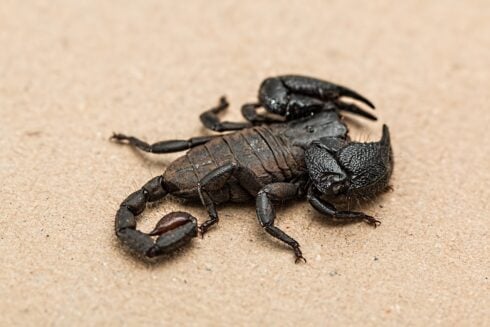EXPERTS have discovered a new species of scorpion on the coast of Huelva province- in the Doñana area- which they have named grandly as Buthus gonzalezdelavegai.
Scorpions have survived since the Silurian period, and 1,251 species have been identified worldwide
Biologist Antonio Luis Gonzalez and arachnologist Luis de Armas said the discovery ‘not only enriches the natural heritage of Huelva, but also highlights the importance of research and conservation of local biodiversity’.
READ MORE:
- Venomous scorpion bites woman opening online order in Spain’s Valencian Community
- Brit finds deadly scorpion in suitcase following holiday in Almeria
- Man rushed to hospital with snake bite found to have 45 fatal and illegal reptiles hidden at home

In an article in the Iberian Journal of Arachnology, they state that research on the biodiversity of scorpions in the Iberian Peninsula began to gain momentum at the start of the 21st century.
Since the discovery of Buthus ibericus in 2004, the Cuban specialist Rolando Teruel has found 16 species of it in Spain and Portugal- nine of which were in Andalucia.
Luis Moline and de Armas examined specimens from Huelva province, identifying two previously discovered species: Buthus baeticus and Buthus delafuentei.
Their work on the Huelva coast made it possible to identify a new species that lives in sandy areas and dunes that is very similar to Buthus delafuentei, but with distinctive morphological features.
The new species, Buthus gonzalezdelavegai, has been dedicated to Juan Pablo Gonzalez de la Vega, a Huelva naturalist who played a key part in the the study of amphibians and reptiles in Andalucia and discovered this type of scorpion.
The find highlights the rich biodiversity of scorpions in Andalucia which is comparable to that of North Africa.
Click here to read more Nature News from The Olive Press.








